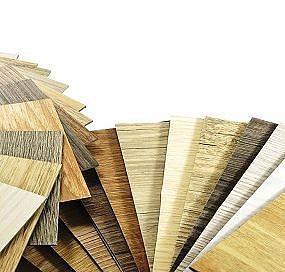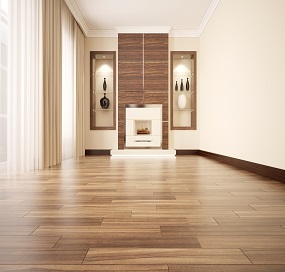What is Janka Hardness Test?
The Janka hardness test measures how hard different types of wood are. It does this by measuring how much force it takes to drive a steel ball into a plankof wood (see image). This is relevant to picking a new floor, because the Janka test can tell you how easy or difficult it will be to damage the floor by denting it.
Why does it matter for flooring?
When picking flooring, consumers need to find a compromise between flexibility and stability. Take a look at the following chart to determine which level of hardness is right for you. An interesting thing to note from the chart is that Oak is a relatively soft wood. However, Oak is by far the most common type of solid hardwood flooring people install in their homes. This shows that a very hard wood is not always the best choice.
Essentially, while it is easier to dent softer wood, it is also more flexible. This makes it easier to install and re-finish. In addition, wood that is very hard can also be brittle.
Depending on your climate, you may want to stay away from a hardwood that has a very high Janka rating. For example, in very dry climates, Brazilian Cherry or Brazilian Patagonia Walnut might crack. Softer wood has the flexibility to withstand changes in humidity and temperature that can sometimes damage harder wood.
Three Factors to Consider
So, when deciding which type of wood you want to install, you should primarily consider two factors:
- Traffic: If lots of people will be walking on your new floors, especially children and pets with sharp nails, then you may want to consider a harder wood that can better withstand the everyday wear and tear of your active lifestyle.
- Humidity: If you live in a very dry area, you may want to consider a softer wood that can better withstand the effects of temperature and humidity.
A final factor to consider is the finish you use to seal the floor. Modern advancements in finishes have made it possible to install many different types of hardwood flooring in your home, regardless of climate. In addition, a good finish can help protect your floor from scuffs and scratches, making it possible to install a softer wood in areas that see a lot of traffic.
Still not sure how hard your wood should be? Shoot us an email and we’ll get back to you promptly with a solution.



